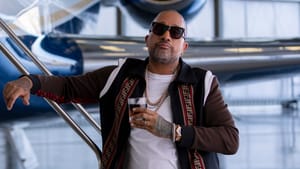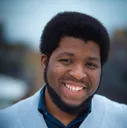Stay in the Loop
BSR publishes on a weekly schedule, with an email newsletter every Wednesday and Thursday morning. There’s no paywall, and subscribing is always free.
Is #blackAF Black enough?
Kenya Barris’s ‘#blackAF’ on Netflix is a brazen family comedy

I wouldn’t be where I’m at if it weren’t for the Black sitcom. They’re part of my creative foundation. Classics like The Fresh Prince of Bel-Air, Family Matters, and even Kenan and Kel gave me not just inspiration, but hope. The golden age of Black sitcoms has long since passed, and pickings were slim in the 2000s and early 2010s. black-ish, A Black Lady Sketch Show, and The Carmichael Show have been breaths of fresh air on the scene. But Kenya Barris’s new Netflix production, #blackAF, is not a breath of fresh air. Instead, it comes with that smoke. The kind of smoke that television needs right now.
#metaAF
Before we get into what makes Barris’s latest venture special, it’s worth considering his body of work. He’s written for TV shows The Game, Are We There Yet?, and Girlfriends. He wrote Barbershop: The Final Cut and cowrote Girls Trip (both underrated flicks), and produced the hit America’s Next Top Model. You’ll know this for sure by the end of the first season of #blackAF because, well, Barris never stops talking about it.
Yeah, Kenya Barris plays himself. He is not an actor in real life, but by the end of the first season, I wasn’t sure what real life was anymore.
#blackAF is meta AF. It’s a mockumentary directed by Drea Barris (Iman Benson), the fictional daughter of the exaggerated Kenya. Within the broken four walls of the show, Kenya just got a Netflix deal to produce a new show, and Drea, aspiring to film school, is making the documentary to submit to NYU. Observing her family, Drea is candid about her five erratic siblings, their robust personalities popping with idiosyncrasies and modern coming-of-age truths. Joya (Rashida Jones), the mother of the family, explores her own self-doubt in Drea’s interviews. She’s a lawyer turned stay-at-home mom wrestling with her half-Black, half-white identity (which is partly true of Jones in real life).
The truths hurt
Drea asserts she’s the most normal of the bunch, claiming that she’d be just fine with “Pop-Tarts and OJ” during the first episode’s fancy hotel brunch. She’s “just not an asshole,” she adds. But the apple-cinnamon Pop-Tarts don’t fall too far from the tree. The whole family is quite unlikable. Kenya even tells his kids that “neither one of you are great. Like, at all.”
It’s charming, really.
Pettiness is abundant in this show, but the kind that is endearing. This is how my closest family and Black friends interact with each other. We bicker, we banter, we dunk on each other all the time. It’s how we show love to each other. It makes us tough. Because surviving out here ain’t easy, and being a star writer and producer as a Black person in Hollywood is like asking your mom for a whooping—the kind that makes you question everything you’ve ever known.

Or worse: being told you aren’t Black enough.
Bigger queries
In the first episode, Drea recites Kenya’s resume again, noting that “everything [Kenya] has ever done is Black stuff. About Black things with Black people.” Then a light bulb flickers on. “Wow, now that I think about it, he’s pretty much just a racial profiteer.” This pivots into Kenya’s coil of self-doubt throughout the first season’s eight episodes.
A playful, serendipitous banter with Steven Levitan (producer of Wings, Frasier, and Modern Family, playing himself here) is the first glimpse at Kenya’s inner conflicts. Tension with his kids, whom he always seems to misunderstand, bleeds into his dysfunctional relationship with Joya. And a deeply personal conversation with Tyler Perry (as himself) lays out some uncomfortable truths about being Black in Hollywood (it was enough to get me to question my long-standing disdain for Perry’s films and form some bigger queries).
Black enough?
Inevitably, #blackAF will raise some eyebrows. Is it actually Black AF, or is it still just Black enough? Are we watching a third spin-off to black-ish, or does #blackAF bring something new to the table? At its core, the show is asking those questions, but it isn’t concerned about the answers, which are subjective from viewer to viewer. However, I found Barris’s new endeavor bold and masterfully brash, scratching an itch only shows like Everybody Hates Chris, Martin, and Arrested Development can. #blackAF is a major contribution to the complicated, complex Black narrative.
What, When, Where
#blackAF is now streaming on Netflix.
Sign up for our newsletter
All of the week's new articles, all in one place. Sign up for the free weekly BSR newsletters, and don't miss a conversation.

 Kyle V. Hiller
Kyle V. Hiller